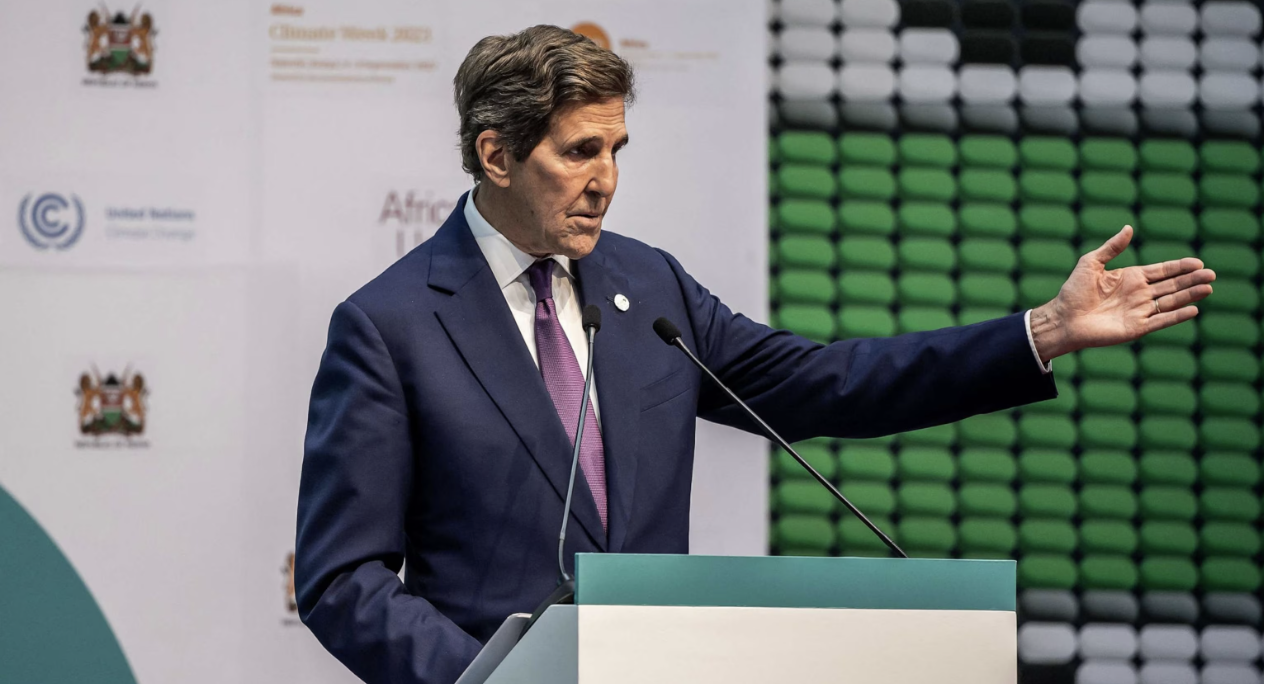In a groundbreaking moment at the inaugural African Climate Summit, John Kerry, the U.S. government’s climate envoy, asserted that the global transition to cleaner energy is an unstoppable force, impervious to climate skepticism among world leaders.
Speaking during a news conference in Nairobi, Kenya’s capital, Kerry emphasized that this transition is not merely a possibility but an inevitability, primarily driven by an increased involvement of the private sector. He noted that the business community’s commitment to sustainable practices is poised to play a pivotal role in steering the world toward cleaner energy sources.
The African Climate Summit, which commenced on Monday, has provided a platform for leaders across the continent to voice their concerns on a global issue that disproportionately affects Africa, despite its relatively lower contribution to global carbon emissions. Kerry underscored the alarming fact that 17 out of the world’s 20 nations most severely impacted by climate change are located in Africa, while the wealthiest 20 countries, including the United States, are responsible for 80% of global carbon emissions driving climate change.
Responding to Kenyan President William Ruto’s call for a discussion on carbon taxation, Kerry clarified that President Joe Biden’s administration has not yet endorsed a specific carbon pricing mechanism. Ruto had emphasized the urgent need for a global conversation on carbon taxation, citing the detrimental effects of climate change on Africa’s economic progress.
The United Nations estimates that climate-related losses and damages in Africa could range from $290 billion to $440 billion between 2020 and 2030, depending on the extent of global warming. The summit’s opening speeches resonated with calls to reform the international financial structures that have placed African nations in a predicament, where they pay significantly higher interest rates on borrowed funds compared to others, exacerbating the continent’s debt crisis.
Climate finance emerged as a central theme, with speakers highlighting the unfulfilled promise of richer nations to provide $100 billion annually in climate finance to developing countries. This financial commitment remains a critical element in supporting climate mitigation and adaptation efforts across Africa and the world.





